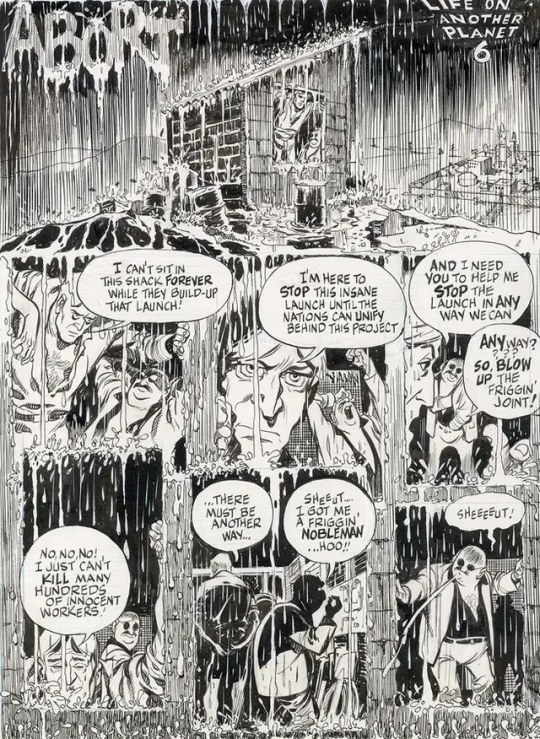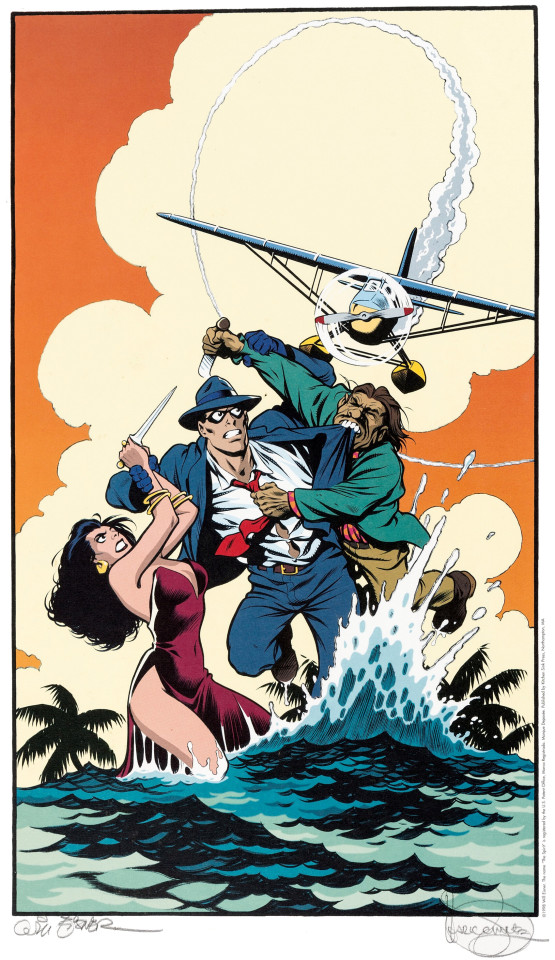#will eisner
Explore tagged Tumblr posts
Text
Two of those (the Joe Dope posters) were done by comics pioneer Will Eisner.
I'm saving one poster for reposting.
WWII Propaganda Posters – Art to Inspire 🖼️

Victory gardens, rationing, safety at sea – during WWII the U.S. government plastered messages on posters nationwide. The Still Picture Branch holds 44-PA: World War II Posters (1942–45), including work by famed cartoonist Will Eisner. See dozens of these historic posters (from patriotic to poignant) in our Catalog: NAID 513498.

Image: “‘Of Course I Can!’ I’m patriotic as can be – And ration points won’t worry me!”. Home-front posters like this encouraged Americans to can food and save resources. ALT: Color WWII poster of a woman juggling jars of produce under text “Of Course I Can!” (NAID 515098).

Image: “Don’t be a dope – Handle equipment right!”. Cartoonist Will Eisner created Joe Dope, a bumbling GI who taught troops what not to do. (In this poster, Joe’s negligence sends a jeep’s wheels flying!) ALT: WWII safety poster by Will Eisner showing a jeep crash due to loose bolts, captioned “Don’t be a dope – Handle equipment right!” (NAID 514727).



From stirring recruitment appeals to humorous instructional comics, these WWII posters reflect the era’s spirit. Browse over 1,300 WWII posters in NARA’s holdings – an eye-catching window into the 1940s war effort.
338 notes
·
View notes
Text
the way will eisner drew rain makes me froth at the mouth like look at this



master of his craft.
#one of the best american cartoonists to ever. o7#will eisner#sopping fucking wet rain#the wettest rain in the world
1K notes
·
View notes
Text

Will Eisner's The Spirit Unused Cover Painting (c. 1974-86)
179 notes
·
View notes
Text




Tintin Crossover Fan Art 2 by @adammurphyart
#the adventures of tintin#Tintin#crossover#Dick Tracy#Indiana Joens#The Spirit#Herge#will eisner#Asterix and Obelix#comics#cartoons#movies#cinema#film#fan art#art#pulp comics
1K notes
·
View notes
Text

The Spirit from December 1, 1940. Art by Will Eisner.
170 notes
·
View notes
Text

Will Eisner, A Contract With God
176 notes
·
View notes
Text

Inspirational words from 95-year-old working master Jules Feiffer for all of us creating later in life and maybe earlier in life too.
A tribute is rendered in a lovely strip by Peter Kuper, who separately interviewed Feiffer on his career, his many creative hats, creating despite macular degeneration, and “the endless fight.”
#jules feiffer#cartoonists#peter kuper#nonagenarians#macular degeneration#artists#graphic novelists#illustrators#the village voice#will eisner
83 notes
·
View notes
Text










Will Eisner’s the Spirit!
Will Eisner
Georges Jeanty
Bernie Wrightson
Eric Powell
Michael William Kaluta
Eduardo Risso
Phil Hester
Ron Salas
Bruno Selig
Trevor Von Eeden
#the Spirit#Will Eisner’s the Spirit#Will Eisner#Denny Colt#Georges Jeanty#Bernie Wrightson#Eric Powell#Michael William Kaluta#Eduardo Risso#Phil Hester#Ron Salas#Bruno Selig#Trevor Von Eeden#Black and White#Comics#Art#Illustration
96 notes
·
View notes
Text

The Spirit - art by Darwyn Cooke (2009)
119 notes
·
View notes
Text

The Spirit by Will Eisner and Mark Schultz
215 notes
·
View notes
Photo

(via The Will Eisner M-16 U.S. Army Rifle Maintenance Booklet, 1968 - Flashbak)
34 notes
·
View notes
Text

Will Eisner's The Spirit by Tim Sale
48 notes
·
View notes
Text


Preventative Maintentance pamphlet art by Will Eisnet
208 notes
·
View notes
Text






I love cartoons and comics . Kim possible I can't get enough of but finding out superman and batman were created by Jews ....🥰🥰🥰 Jews have such a rich culture in entertainment. Period .
Just wanted to share this 🇮🇱💙🤍
#jewish culture#jewish#jewish pride#jerry siegel#joe shuster#stan lee#joe kirby#will eisner#joe simon#superman#captain america#batman#the fantastic four#the x men#the spirit#super hero jewish roots#israel#the united states#jumblr#jewish creativity#bob kane
87 notes
·
View notes
Text

The Spirit from February 13, 1949. Art by Will Eisner.
71 notes
·
View notes
